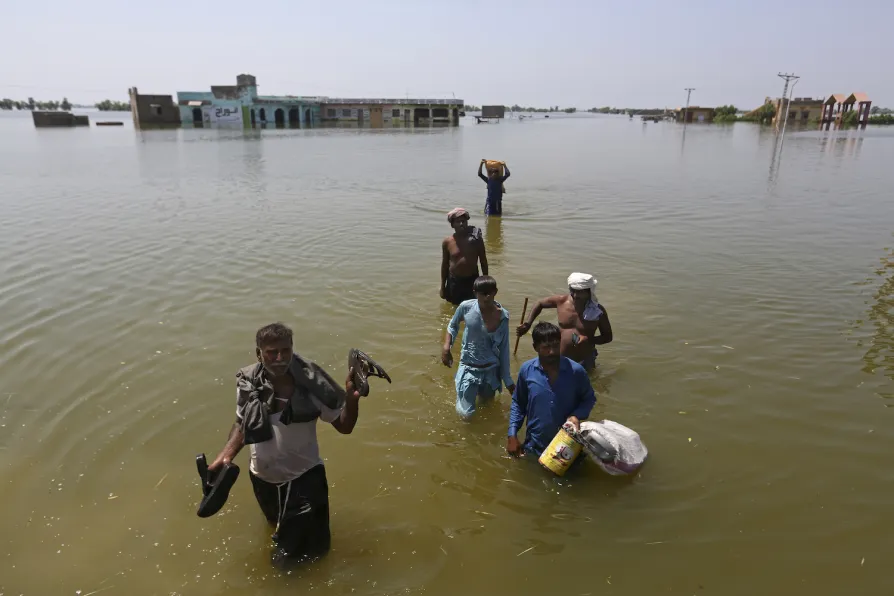
 Victims of flooding from monsoon rains carry belongings salvaged from their flooded home in the Dadu district of Sindh Province, of Pakistan, Sept. 9, 2022.
Victims of flooding from monsoon rains carry belongings salvaged from their flooded home in the Dadu district of Sindh Province, of Pakistan, Sept. 9, 2022.
CLIMATE impacts are heading into “uncharted territories of destruction,” the head of the UN has warned, as a multi-agency report sets out the scale of the crisis.
The United In Science report, co-ordinated by the UN’s World Meteorological Organisation (WMO), warns that “without ambitious action, the physical and socio-economic impacts of climate change will be devastating.”
It details greenhouse gas levels – largely carbon dioxide from burning fossil fuels – continuing to rise, increasingly high global temperatures and destructive climate-driven floods, droughts and heatwaves already happening around the world.
The report comes as Pakistan suffers from catastrophic flooding, and in the aftermath of searing heat and drought in parts of the world — including Europe and the UK — which saw temperatures climb above 40°C for the first time on record.
And it warns there is a huge gap between the pledges countries have made under the international Paris Agreement — to curb global temperature rises to 1.5°C above pre-industrial levels to avoid the worst impacts of climate change — and the action they are taking to deliver it.
UN secretary-general Antonio Guterres said the report showed the world was “way off track,” with climate action stalling, a failure to help the vulnerable adapt to a changing world and losses from climate disasters of $200 million (£170m) a day.
“Floods, droughts, heatwaves, extreme storms and wildfires are going from bad to worse, breaking records with ever alarming frequency,” he warned.
“They are the price of humanity’s fossil fuel addiction.
“This year’s United In Science report shows climate impacts heading into uncharted territories of destruction, yet each year we double down on this fossil fuel addiction, even as the symptoms get rapidly worse.
“The current fossil fuel free-for-all must end now. It is a recipe for permanent climate chaos and suffering.”
Mr Guterres also called for far more finance from rich nations and development banks to help developing countries and vulnerable communities adapt to climate change and disasters.
Tasneem Essop, executive director of the global Climate Action Network of environmental and social organisations and aid agencies, said: “The terrifying picture painted by the report is already a lived reality for millions of people facing recurring climate disasters.
“The science is clear, yet the addiction to fossil fuels by greedy corporations and rich countries is resulting in losses and damages for communities who have done the least to cause the current climate crisis.”














